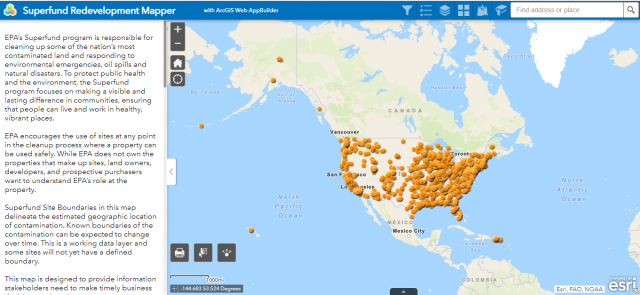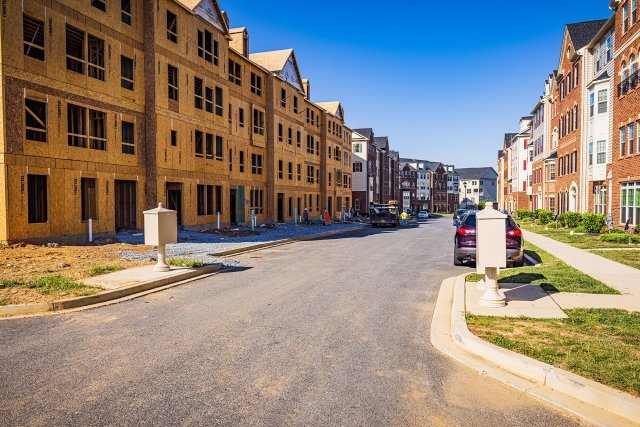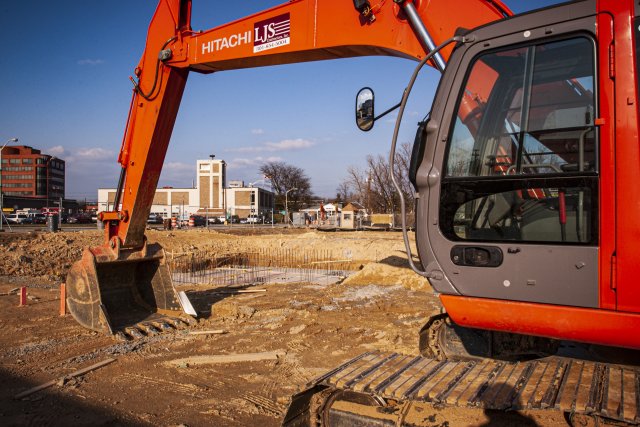Redevelopment Tools for Site Owners, Developers and Prospective Purchasers

Successful Superfund Redevelopment projects around the country show how to overcome reuse-related barriers and challenges. EPA is committed to working with all stakeholders during all phases of cleanup to return sites to beneficial use. The tools and resources below can assist site owners, developers and prospective purchasers with site related information and decision making.
On this page:
- Mapping Applications
- Redevelopment Opportunities
- Top 10 Questions to Ask When Buying a Superfund Site
- Comfort/Status Letters Guidance
- Revitalization Handbook – Revitalizing Contaminated Lands: Addressing Liability Concerns
- Settlement Agreements
- Ready for Reuse (RfR) Determinations
- Superfund Climate Resilience
- Getting Started with Superfund Redevelopment
- Prospective Purchaser Inquiry Process
- Superfund Redevelopment Technical Assistance Services Fact Sheet
- Reuse Opportunities at Capped Superfund Sites
- Superfund Redevelopment Using Opportunity Zone Tax Incentives
- EPA SRP Webinar (September 2019): Successful Superfund Redevelopment & the Prospective Purchaser Inquiry Tool: Solitron Microwave Site Case Study
Mapping Applications
-

People use this mapping application to explore new development opportunities at Superfund sites. Search filters include Superfund site locations and related data layers, such as site details, community context, renewable energy potential, demographics, environmental conditions and infrastructure considerations. These features enable users to tailor reuse queries for specific areas and evaluate them quickly and easily.
- Superfund Sites and Opportunity Zones StoryMap
This StoryMap provides information about how Opportunity Zone tax incentives can be used to redevelop sites. Redevelopment of current or former Superfund sites may qualify for Opportunity Zone tax benefits.
Documents and Other Resources

- Redevelopment Opportunities
EPA’s Redevelopment Opportunities web page provides developers, prospective purchasers and other parties interested in Superfund Redevelopment with lists of sites that are ready for reuse. Ready for Reuse fact sheets are available for some of these sites. These fact sheets detail when and how a site is (or will be) ready for reuse.
- Top 10 Questions to Ask When Buying a Superfund Site
Las 10 Preguntas Principales Que Hacer Al Comprar Un Sitio Superfund (PDF)
Las 10 Preguntas Principales Que Hacer Al Comprar Un Sitio Superfund (Puerto Rico) (PDF)
This document answers many of prospective purchasers’ most common questions when considering property acquisitions at Superfund sites.
- Comfort/Status Letters Guidance
EPA's comfort/status letter policy provides recommendations and model letters for EPA Regions to use when responding to parties interested in reusing and/or redeveloping contaminated, potentially contaminated, and formerly contaminated property (“impacted properties”).
- Revitalization Handbook – Revitalizing Contaminated Lands: Addressing Liability Concerns
The Revitalization Handbook discusses potential liability concerns associated with cleanup and reuse of Superfund sites and shares tools to address them.
- Settlement Agreements
Settlement agreements address liability concerns of a prospective purchaser when they are willing to do cleanup work that is beyond what would be expected of them to maintain a Superfund law liability protection (e.g., bona fide prospective purchaser reasonable steps).
- Ready for Reuse (RfR) Determinations
An EPA Ready for Reuse (RfR) Determination provides a technical determination that a site is “ready for reuse” and will remain protective of human health and the environment for that use, so long as any use limitations established by EPA continue to be met.
- Superfund Climate Resilience
Remedies at contaminated sites may be vulnerable to the impacts of climate change and extreme weather events. EPA's Superfund program developed an approach that raises awareness of these vulnerabilities and applies climate change and weather science as a standard operating practice in cleanup projects. The approach involves periodic screening of Superfund remedy vulnerabilities, prioritizing the Superfund program's steps to adapt to a changing climate and identifying measures to assure climate resilience of Superfund sites.
- Getting Started with Superfund Redevelopment (PDF)
This tool highlights key issues and considerations to think about while planning and moving forward with site redevelopment.
-

Servicio de Consulta para Compradores Prospectos (PDF)
Servicio de Consulta para Compradores Prospectos (Puerto Rico) (PDF)
Several EPA Regions offer a Prospective Purchaser Inquiry Process. This free information service is available to prospective purchasers, sellers, lessees and other stakeholders involved in the redevelopment of a current or former Superfund site. Contact your EPA Regional Redevelopment Coordinator to learn more about the availability of this service for a site of interest.
- Superfund Redevelopment Technical Assistance Services Fact Sheet (PDF)
Reurbanización del Programa Superfund Servicios de Asistencia Técnica (PDF)
Reurbanización del Programa Superfondo Servicios de Asistencia Técnica (Puerto Rico) (PDF)
This fact sheet describes EPA’s technical assistance services that are available to support the productive reuse and redevelopment of Superfund sites.
- Reuse Opportunities at Capped Superfund Sites (PDF)
This report discusses leading examples of capped-area reuses across the country, highlighting recent trends, key factors and considerations that make these uses possible.
- Superfund Redevelopment Using Opportunity Zone Tax Incentives (PDF)
This fact sheet provides information on using Opportunity Zone tax incentives for Superfund site redevelopment. Opportunity Zones are a powerful way to encourage revitalization in economically distressed communities. Redevelopment of current or former Superfund sites may qualify for Opportunity Zone tax benefits.
- EPA SRP Webinar (September 2019): Successful Superfund Redevelopment & the Prospective Purchaser Inquiry Tool: Solitron Microwave Site Case Study
Location, location, location...and liability protection! EPA works with bona fide prospective purchasers to help them understand liability protections and any site use restrictions in order to successfully develop Superfund sites during and after cleanup. This webinar uses the real world example of the Solitron Microwave Superfund site to provide an overview of liability protections and best practices to successfully redevelop Superfund sites across the nation.
